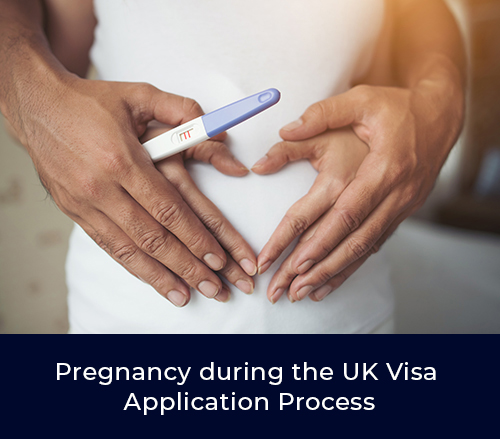Everything you need to know about Life in the UK Test
Are you on the path to UK citizenship? The Life in the UK test is a must, but it can seem overwhelming. Passing the Life in the UK test is essential for those seeking the UK citizenship. Unfortunately, this test can be quite daunting, as it consists of several parts, and detailed questions. People who already experience anxiety when taking tests may find the idea of this test especially concerning. However, gaining a clear understanding of the test’s content can help alleviate these anxieties. Here is what you need to know if you are preparing for the Life in the UK Test.
Who is required to take the test?
Essentially, anyone entering the UK as a migrant between the ages of 18 and 65 is required to take the Life in the UK Test, a vital step on the path to UK citizenship. This test, designed to assess your knowledge of British culture, history, and customs, plays a crucial role in the citizenship application process. However, there are exceptions to this requirement. If you happen to be under the age of 18, over 65, or have extenuating circumstances that prevent you from taking the test, you may fall into the exempt category.
Many people are concerned if they need to retake the test if they’ve already taken it before. No, there’s no need to retake the test if you’ve already passed it. Whether you’re re-entering the country or seeking renewed citizenship, the test you previously completed will still be valid and can count towards fulfilling your citizenship requirements. You don’t have to worry about undergoing the testing process again.
Life in the UK Test – the most frequently asked questions
In this guide, we address the most frequently asked questions to help you navigate the test and your path to British citizenship.
Is the Test Hard?
The exam is specifically designed to evaluate your knowledge of British culture, history, and the rights and responsibilities of living in the United Kingdom. It covers a wide range of topics, including historical events, famous figures, British traditions, government structure, and more. The Life in the UK Test is challenging, and even some UK citizens may find certain questions difficult. However, the key to success is practice and thorough preparation. Thousands of migrants pass this test each year, so with diligent study, you can too.
Can I Take the Test from Anywhere?
No, the test must be taken at an approved testing location. Testing centres are available throughout the UK, specializing in the Life in the UK test. Finding a convenient location to book your test is typically straightforward.
How Do I Book the Test?
To book the test, you’ll need a valid passport, travel document with a photo, biometric residence permit, or biometric residence card as a form of ID. You can book the test on the official UK government website at least three days before the testing date. In some cases, it’s possible to arrange short-notice or Sunday testing, depending on availability.
Is There a Fee?
Yes, there is a fee of £50 for the test. This fee is refundable if the test is cancelled at least three days in advance. However, it cannot be refunded if you do not pass the test and are required to retake it. In the event of a failed test, you will need to reschedule for a future date.
Do I Receive a Certificate for Passing?
No, certificates were discontinued in 2019. The new format for confirming a passing grade on the Life in the UK Test is an emailed reference number, which serves as proof of completion and success. The Home Office maintains records of these reference numbers. If you lose your reference number, you can request a replacement by sending a letter along with your citizenship application. The Home Office can retrieve the information as needed.
What is the Pass Rate for the Exam?
To pass the Life in the UK Test, you need to score 5% or higher. This means that out of the total questions in the test, you need to answer at least 18 correctly to obtain a passing grade. To increase your chances of passing, consider comprehensive study materials and practice exams that are widely available. Additionally, many online resources and official guides are accessible to help you prepare and feel more confident when taking the test. Remember, with dedicated study and preparation, you can navigate this important step on your journey to obtaining UK citizenship.
What Happens Following the Test?
Each person who passes the exam receives a unique reference number via email. The recipient will wait in the waiting room until their URN (Unique Reference Number) is available to them. Your URN is essentially your identification number according to the Home Office, so it’s important to include this number in all correspondence.
Does the Life in the UK Test Expire?
No, it is valid for life. Once you have successfully passed the test and met the citizenship requirements, you won’t need to retake it. This means that your accomplishment in passing the test is a permanent and essential part of your journey toward obtaining UK citizenship.
What if I Do Not Pass?
If you do not pass the test, you will need to retake it and wait for seven days before you are eligible to do so. Additionally, you will be required to pay the fee again.
How to prepare for the Life in the UK Test
Preparation is the key, but often the question of how long you need to study arises. Essentially, it depends on your ability to absorb and retain information about the UK as a country, as well as your personal English language skills. Some candidates may not need to study much, while others will have to study extensively.
The Life in the UK test encompasses four primary subject areas, providing a comprehensive evaluation of your knowledge about the United Kingdom:
- UK History: This section delves into the historical events, significant figures, and milestones that have shaped the United Kingdom over the centuries. You may encounter questions related to key historical events, important dates, and influential individuals who have contributed to the nation’s development.
- The British Government: Understanding the structure and functioning of the British government is vital. You will be tested on your knowledge of the UK’s political system, including the roles of the monarch, Parliament, Prime Minister, and other governmental institutions. Questions in this category might focus on the different branches of government, the legislative process, and the electoral system.
- UK Geography: Familiarity with the geographical aspects of the United Kingdom is essential. This segment covers topics such as the country’s regions, capitals, physical geography, and other significant geographical features. Expect questions about the UK’s cities, rivers, mountains, and overall geographical layout.
- Local Culture: In this section, you’ll encounter inquiries about the rich and diverse culture of the UK. This includes topics like art, literature, music, sports, and customs that are an integral part of British society. Questions may revolve around famous British authors, artists, cultural celebrations, and traditional customs.
The best way to prepare and gain an advantage in the test is to study the official Life in the UK Test Manual. Consider taking a few practice tests along the way to ensure you understand the testing format. Keep in mind that each test is randomized, so you won’t know the specific questions you’ll be tested on.
How SilverOak Solicitors can assist you
SilverOak Solicitors are here to support you throughout your UK citizenship application journey, including any inquiries you might have about the Life in the UK Test. We specialise in providing expert guidance on this important step. Our experienced team has successfully assisted numerous individuals in their citizenship endeavours and is eager to assist you too. Don’t hesitate to reach out to us today to embark on your path to UK citizenship.
Get in touch with one of our immigration experts
Use the online chat on our website
Call us on 020 8578 7778
E-mail us contact@silveroaksolicitors.com
Visit us at our office. We are open Monday-Friday 9am - 5.30pm
When you first contact us, we will ask for some initial details, including your contact information and the nature of your enquiry. You can be assured that everything you discuss with us will be completely confidential, and any information stored by us will be in accordance with UK data protection regulations.
















